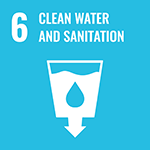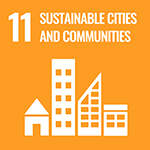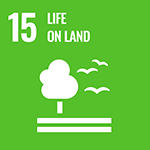![]()
Garden for Eden
Why?
The way we tend our gardens and backyards can damage the health of our rivers and lakes.
Pesticides (insect and slug killers), herbicides (weed killers) and artificial fertilisers used in our gardens can all end up in our rivers and lakes, contaminating the water.
The use of peat compost is destroying peatlands, which are an essential part of a healthy planet; having taken thousands of years to form, they maintain water quality, help to regulate flow off the hills, lock up carbon from the atmosphere and are home to rare and vital habitat and wildlife.
Damaged peatlands result in murky ‘peaty’ water running off the hills into our rivers (which costs us more when water companies have to clean it before reaching our taps).
Peat acts as a massive sponge, soaking up excess rainfall and storing it in upland areas. If peat is dug up to be used for garden compost, that rain will instead rush down the hills into the valleys, increasing the risk of flooding downstream.
Peatlands help in the fight against global warming by storing carbon. When peat is destroyed, it releases its carbon stores - speeding up climate change.
You have the power to garden for Eden!
Scroll down for some tips to help you get started:
You can do it
Here's how

For Pete's sake, go peat free!
Switching is easy and good quality peat-free composts are just as, if not more, effective as those that contain peat. We love Eden-based Dalefoot Composts, who make their compost from sheep wool and bracken from the fells local to them (the RHS and many well-respected gardeners such as Monty Don also love them).
Be a savvy shopper:
Check the ingredients label to be sure it is 100% peat-free, as packaging can be deceptive - ‘environmentally-friendly’, ‘organic’ doesn’t mean peat-free. While a good quality peat-free compost may be a little more expensive kilogram for kilogram, the price reflects quality so overall you’re likely to get more beautiful blooms for your money. Find out more about peatlands and peat-free gardening from WWT.
If your local garden centre doesn’t sell 100% peat-free compost yet, then be brave and ask them why not – if gardeners demand it, they will sell it.
Question your garden centre if the plants they sell are potted in peat compost.
Why not try a plant swap with friends instead of buying?
Go organic
Keep your outdoor spaces safe for children, pets and wildlife by going chemical-free. Chemical pesticides and herbicides are designed to kill and they all contain hazardous substances. The Wildlife Trusts and Royal Horticultural Society (RHS) have some tips on gardening organically and other ways to keep pests at bay.
Be a savvy shopper:
Look carefully at the ingredients in your weedkiller and research whether it could be harmful to humans/wildlife.
Pick plants that are naturally more pest-resistant.
How does your garden grow
Look after your garden soil because healthy soils grow better plants. Soils with plenty of free drainage (thanks to good root growth and the humble earthworm) retain more water, reducing the need for watering. Soil is a ‘living’ aerobic environment and a ‘good’ soil is 45% mineral, 25% water, 25% air and 5% organic matter.
Use of artificial fertilisers can actually be bad for your soil health, and too much can leach or wash into rivers and cause pollution.
Top tips:
Use natural soil conditioners such as leaf mulch, bark chippings, well-rotted organic manure, coir (from coconuts), green manure, make your own liquid feed from comfrey or nettles, organic chicken manure can also be a useful addition. Natural Grower is just one company that sells petrochemical-free, vegan, organic natural fertilisers and soil conditioners.
Be a savvy shopper:
Some organic fertilisers contain fish blood and bone, which it is best to avoid to ensure our seafood remains sustainable - see our promise, Eat sustainable seafood.
Water wisely
Save water and look after your soil by watering with the right amount at the right time of day.
Instead of reaching for the garden tap, collect rainwater and reuse water from the home (e.g. the water that gets wasted as you wait for the hot water to come through).
Why not get a water butt from United Utilities and use the clean rainwater to water your garden?
The Guardian newspaper has some handy tips for saving water in the garden.
Project: create a rain garden
Create a ‘downpipe garden, which can be great for wildlife and make an attractive feature in even the smallest of backyards. South East Rivers Trust show you how!
Project: make your own compost
To get you started, Westmorland and Furness Council has a guide to composting that's worth reading that covers how to set up your compost bin, what to put in it and how to troubleshoot some common problems you may encounter.
The main thing you need is something to hold your rotting waste as it forms compost.
If you live in Cumbria, you can get one for a low price. Recycle Cumbria has all the details on how to order one. They also have heavily-subsidised food waste digesters on offer as well.
![]()
Inspired?
Join the growing number of people who are making a promise to Act for Eden and make yours today to garden for Eden!
![]()
I promise to
Garden for Eden
and make sure that the way I tend my garden is river-friendly
U.N. Sustainable Development Goals




The action that you’re taking as part of Act for Eden will not just make a difference in your local river and community, it will help transform the world!
This promise has been carefully chosen to meet one or more of the Sustainable Development Goals (SDGs). These are a set of 17 goals set out by the United Nations to focus efforts around the world in order to “achieve a better and more sustainable future for all.” (UN SDG website)
Although major actions are needed by governments, cities and local authorities, it starts with each and every one of us. By keeping your promise to Act for Eden, you are already living and working more sustainably - which is great news for our planet.You‘ll also be part of a growing community of like-minded people who together, are leading by example and generating a force for change, able to push those in authority to make the transformations required.All this just by gardening for Eden - awesome isn't it!
